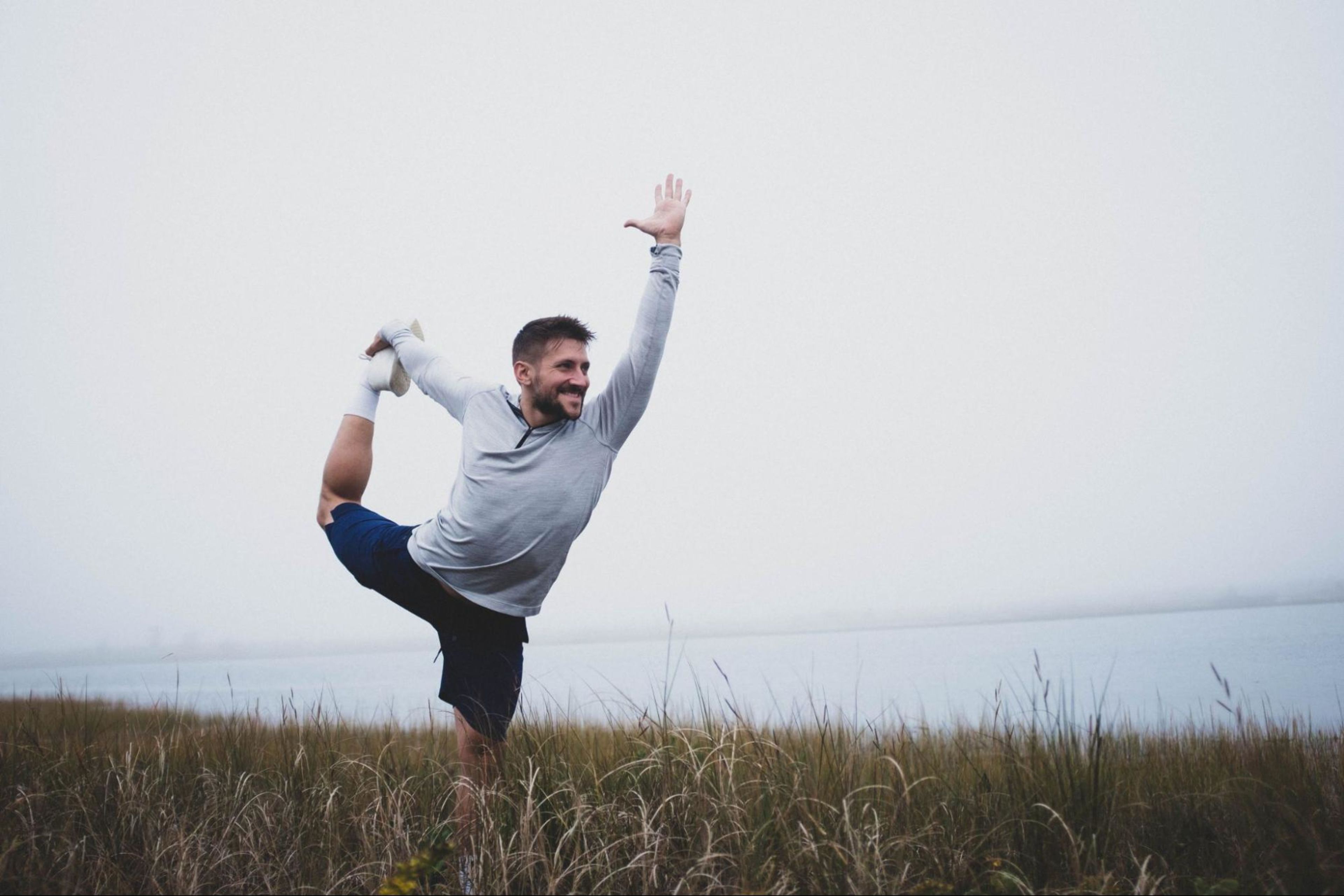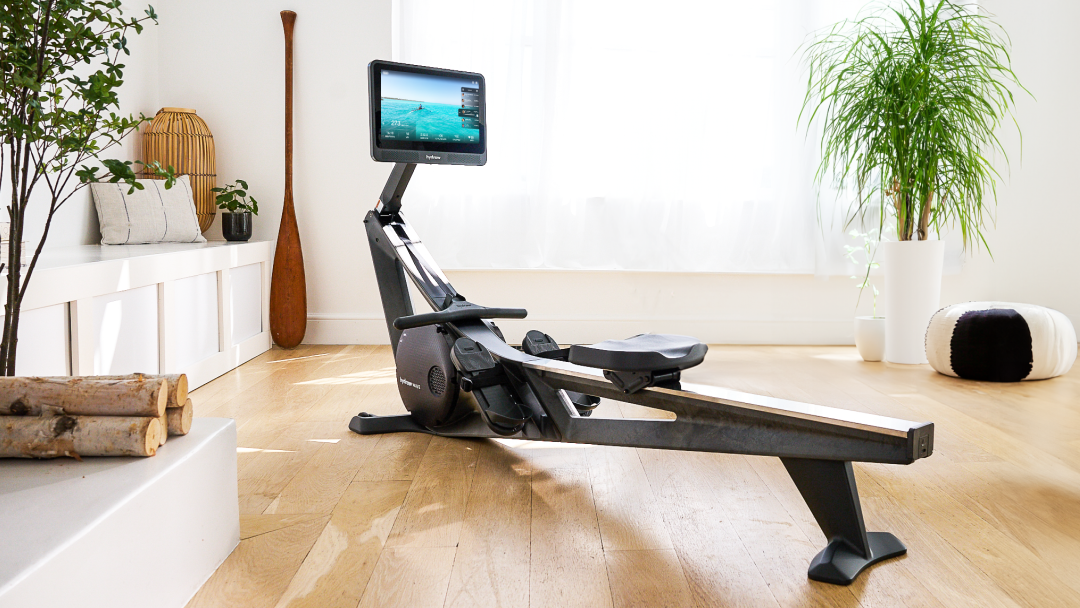When Is the Best Time of Day to Work Out?

Whether you’re looking to launch into a brand-new exercise routine or adjust your current workout schedule, it’s common to wonder when the best time of day to work out is. Do you rise and shine with the sun, squeeze in some cardio on your lunch break, or wait to hit the mat until the end of your workday?
Personal preference certainly comes into play here, but if you’re weighing which time slot should be earmarked for exercise, we’re here to help. Read on for:
Let’s get started!
When is the best time to work out? Key factors to consider
As great as it would be to have a hard-and-fast rule for the best time of day to exercise, the fact of the matter is that it just depends. There are multiple factors that will determine which approach jives best with your lifestyle.
As you’re crafting your schedule, we recommend weighing things like:
1. Your energy levels
Take some time to assess your energy levels throughout the day to mark when you commonly experience peaks and lows. You’ll want to align your exercise routine with a time of day you feel naturally energized. This will maximize both your workout and the likelihood that you’ll start exercising in the first place!
For instance, if you’re the type who needs 15 alarms every minute to get up in the morning, you may want to avoid scheduling your workout for the crack of dawn. Likewise, if you have trouble keeping your eyes open on your commute home, the evening might not be the best time to force yourself into the gym.
2. Your sleep patterns
You’ll also want some understanding of your natural sleep patterns and the impact exercise has on them. For example, some people find that working out in the evening makes them feel naturally tired come bedtime, while others are too wired to sleep after working out at night.
Everyone’s different here, so it’s worth testing out how exercising at different times of day affects your sleep and natural circadian rhythm.
3. Your schedule
While it would be great to have a wide-open calendar with endless availability for two-hour workouts, you likely have more than a couple of life responsibilities you need to build your schedule around. Are you responsible for picking up and dropping off your child from school? Does your workplace have set hours where you have to be at your desk? Do you have social obligations that tend to meet at certain times of day?
If so, you’ll have to pick a time slot that doesn’t interfere with these potential blockers. Consistency is key here, too — you’ll want to pick a time of day that is repeatedly open so you can get used to your routine and increase the likelihood that you won’t fall out of your exercising groove.
4. Your local climate
Depending on the type of workout you do, you’ll also want to factor in how your local weather and temperature shifts throughout the day. You don’t want to time your workouts for the parts of the day when it is overly hot or cold, both for your comfort and safety.
Sometimes, your schedule doesn’t perfectly allow you to work around weather concerns. In this case, you may want to consider indoor alternatives like at-home exercise equipment to give yourself a consistent place to work out, rain or shine.
When is the best time to work out?
Now that you know some of the major considerations to take into account when choosing a good time to work out, let’s dive into the specific pros and cons of working out in the morning, afternoon, and evening to meet your fitness goals:
Working out in the morning
According to YouGov Plan & Track, 50% of U.S. adults who prefer to exercise at a particular time of day like exercising in the morning. The early bird catches the worm, so they say — but are you the kind of person who can wake up and immediately get your heart pumping?
Here are the pros and cons of working out in the morning:
The pros of working out in the morning
Start off your day on the right foot: Working out in the morning can help you launch your day with a boost of energy, both jumpstarting your metabolism and increasing your blood flow right off the bat. It also offers metabolic advantages, as you can continue to burn calories throughout the day due to your increased metabolic rate.
Improved mental health: Morning workouts are also good for maintaining a positive outlook throughout the day, providing health benefits like cutting back on stress and anxiety and boosting your endorphins.
Get your workout over with: One major benefit of working out in the morning is that your exercise routine isn’t hanging over your head the rest of the day. You can get it out of the way, then free up your time for alternative activities.
Exercise on an empty stomach: While some people may benefit from eating before their morning workout, many people prefer to exercise on an empty stomach. If you choose to go that route, you can benefit from timing your breakfast in the post-workout window when your muscles are recovering and you can better shuttle those nutrients toward your rebuilding efforts.
Easier to schedule: The later in the day you schedule your workout, the more things that can pop up and interfere with your best-laid plans. The morning may be your only time where you aren’t juggling other responsibilities, such as parenting, work, housework, and social obligations.
Better sleep: Because you’ll wrap up your workout with plenty of time before you hit the hay, your body will have a ton of time to wind down before bedtime.

What’s your workout style?
Take our quiz and get a customized 14-day training program.
The cons of working out in the morning
Mornings are…hard: It’s no secret that getting up early is no easy feat for some people. It can be difficult to work up the motivation to get yourself out of bed earlier than you need to, especially if the trade-off is an extra hour of much-needed shut-eye.
Increased risk of injury: It isn’t enough to jump right out of bed, into your sneakers, and onto your exercise equipment. Warming up your muscles is vital for avoiding injury and making the most out of your workout. Working out in the morning means you need to give your body more time to work up to your desired state.
Digestive discomfort: This can vary from person to person, but you may find that working out on an empty stomach in the morning is uncomfortable or it’s hard to hit the gym after a full breakfast.
Temperature and weather: If you live somewhere with dark and cold mornings (or where inclement weather is common), it may be less than ideal to time your workouts before the sun rises and your area heats up a bit.
Increased time commitment for your post-workout routine: It’s great that you still have your entire day ahead of you after a morning workout — but you also have your entire day ahead of you. It’ll be necessary to build in enough time into your morning routine to not only complete your workout, but also get ready for the day and complete any other daily tasks.
Working out in the afternoon
Working out in the afternoon offers tons of perks, but did you know that it’s actually the least popular time of day to work out? YouGov Plan & Track reports that just 19% of people who prefer working out at a particular time of day select the afternoon as their favorite.
Is the afternoon right for you? Learn more about the pros and cons of working out in the afternoon below:
The pros of working out in the afternoon
You can mix up your day: Working out in the afternoon provides a nice break between your daily tasks. For instance, leaving your desk to go on a walk, run, or take an exercise class can reinvigorate you for the rest of your day (and help you avoid that classic afternoon energy slump).
You’re more warmed up: Because your body has had more time to get moving over the course of the day, you’ll feel more flexible and ready to tackle your workout than you might first thing in the morning.
More options for socialization: Afternoons and early evenings are a popular time for group fitness opportunities such as sports leagues or classes. This socialization element can help keep you motivated to show up (and make some friends along the way!).
You can reduce your midday stress: It’s no secret that work comes with its fair share of stressful situations. Exercising in the middle of the day can help you reset your brain and get out some of your frustration without snapping at your colleagues.
Better sleep quality: According to the Sleep Foundation, exercising in the afternoon can promote sound sleep by lowering levels of orexin, a neurotransmitter that promotes wakefulness. You’ll also have enough time to wind down after your workout by not doing it so close to when you’re trying to sleep.

Did you know?
Over 90% of Hydrow members are still active one year later.
The cons of working out out in the afternoon
You have to get ready twice: If you’re splitting up your workday with some exercise, you’ll need to build in enough time to be able to freshen yourself up before returning to the office. Whether you need to shower or just change back into your work-appropriate attire, that takes time (and energy) that you could avoid by exercising later in the day.
There’s little time for recovery: Additionally, working out in the middle of the day also means you’ll likely have to jump back into whatever you were working on before your fitness routine. You may also experience time constraints or a need to cut your workout short if you have a meeting to rush back to.
More competition for exercise equipment: If you work in a high-traffic area, you might find that working out in the afternoon on your lunch break means waiting your turn to access certain pieces of equipment at the gym. This, of course, depends on what type of workout you choose to do, but when you want to use your lunch hour for a workout, those 10 minutes spent tapping your toes while waiting for an elliptical to free up can be irritating.
More potential distractions: Whether it’s a 911 text from your boss or some last-minute feedback on a presentation you just have to address, you may find your afternoon workout getting interrupted more often than you’d like.
Working out at night
Thinking about waiting until your day is done to launch into your workout routine? You’re not alone. YouGov Plan & Track reports that 26% of people who prefer to work out at a particular time of day are workout night owls.
Learn more about the pros and cons of working out at night:
The pros of working out at night
Improved sleep (for some): While exercising out too late can have potential impacts on your body’s ability to wind down, some people find that they actually sleep better after completing a nighttime workout. You may be one of them, so give it a try!
Greater workout intensity: Your body has had an entire day to warm up at this point, so you may find you feel stronger and more flexible when working out at night.
Great way to wrap up your day: Having an exercise routine to mark the end of your workday and release pent-up stress can help you better transition into your evening routine.
The cons of working out at night
Potentially poor sleep: Again, depending on your body, you may find that working out too close to bedtime will keep you too keyed up to fall asleep.
Easy to skip: Forgot you had to run to the pharmacy before it closed? Feeling spent after a long day at the office? Waiting until the evening to do your workout comes with the possibility that you’ll find an excuse to get out of it if circumstances aren’t ideal.
Potential schedule conflicts: Saving your workout until nighttime also means that it may interfere with events you want to attend, such as dinner with a friend or happy hour with coworkers.
Busy gyms: Other people like exercising in the evening, so you’ll have to compete with the after-work crowd if you’re hitting up the gym.
Find a workout schedule that works for you
With all of this considered, the best time to work out is the time of day you’ll actually do it. If you’re starting off your exercise routine from scratch, give each option a try and see how it affects your energy levels, sleep, and motivation. What works for someone else may not be the best bet for you, so listen to your body and see how it goes.
Looking for a smarter way to exercise? Rowing activates 86% of your muscles with every stroke, making it one of the most efficient ways to build total-body strength. In just 20 minutes on a rowing machine, you can get a full-body workout that boosts energy, builds endurance, and helps you move better—on and off the rower.
And with Hydrow, it’s easier than ever to stay consistent. No commute. No waiting for machines. Just expert-led workouts you can do from home, whenever it works for you. Choose from rowing, strength training, mobility, yoga, Pilates, and circuit training workouts, all designed to help you move better and feel stronger, long-term.
Our workouts are filmed on location in stunning waterways around the world and led by world-class Athletes who coach you through every stroke and rep. And with over 5,000 workouts ranging from beginner to advanced, it’s easy to keep progressing no matter your level.
Every movement adds up. Start building strength that lasts with Hydrow.

Real strength keeps moving
Learn how working out with Hydrow can help support a fuller, more active life.








